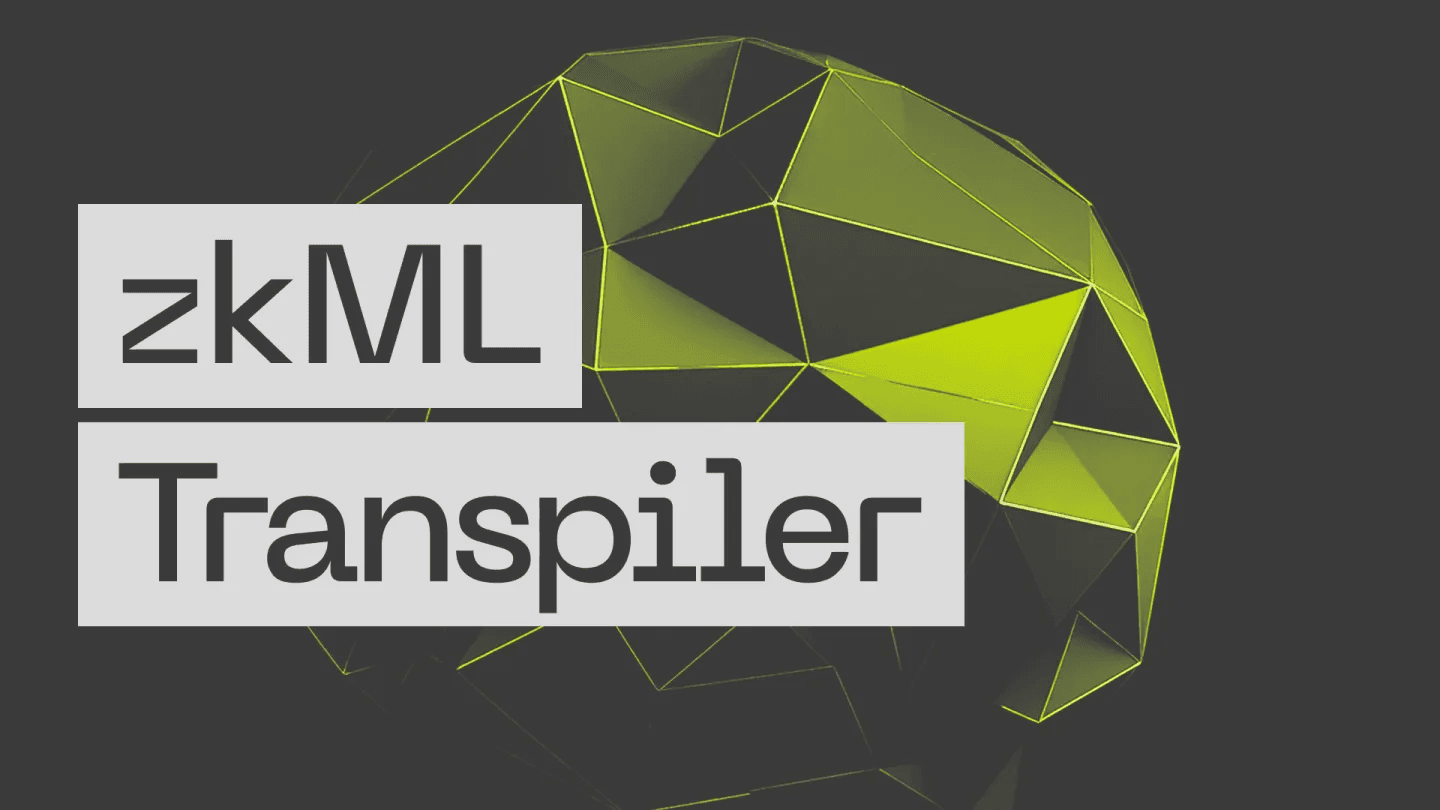The world is driven by models, such as narrative models that shape our understanding and scientific models that shape our knowledge. The underlying premise of AI? That we can use mathematical models to represent real-world systems and, by doing so, use past information to predict new information.
These algorithms, called “machine learning models,” create incredible opportunities for societal and technological innovation. But for as many questions they solve, they also create new ones, particularly around trust. In a reality shaped by these models, how do you verify how a model came to its conclusions?
Zero-knowledge proofs — a method for proving something is true without revealing any additional information — provide a powerful answer to that question.
By embedding machine learning models with zero-knowledge technology, models can verify to users a number of key factors driving their model’s logic, from when and how a model was run to what types of factors and processes drove its decision making.
Just as critically, it does so without having to reveal private data inputs and other sensitive information, creating a whole new category of AI technology: verifiable machine learning models.
Creating verifiable models with Provable’s zkML transpiler
The zkML transpiler is an open-source SDK that bridges Python — one of the most popular programming languages for machine learning developers — and zero-knowledge cryptography.
Developers can train their machine learning model as normal, then use the transpiler to convert the model into Leo, a ZK-friendly programming language compatible with zero-knowledge Layer-1 solutions.
The transpiler is currently implemented for decision tree models, a common type of machine learning algorithm that can create both classification and regression models. Eventually, it may be expanded to include random forest ML models, simple neural networks, linear regression models, and others.
Using the zkML transpiler, or the Leo programming language and possibly other tools, developers can start building verifiable machine learning models — unlocking valuable potential use cases for the entire AI space.
Potential zkML use cases for developers
Zero-knowledge proofs create trustworthy machine learning models, capable of ensuring their integrity and validity to third parties. By validating computations without revealing proprietary algorithms or training data, zkML enables auditable and verifiable machine learning applications.
A number of industries could benefit from such applications — particularly those that have significant regulatory responsibilities and data security obligations. Here are just a few spaces where Provable can see significant opportunities for developers.
Financial Services
Confidential Know-Your-Customer (KYC) processes
zkML powers KYC processes that can be performed privately. Users can securely verify their identities and satisfy regulatory requirements without compromising their personal data. Zero-knowledge proofs enable the validation of identity attributes while preserving confidentiality.
Privacy-preserving credit scoring
zkML enables the creation of credit scoring models that assess borrowers’ creditworthiness without exposing sensitive information. Lenders can securely evaluate borrowers based on their financial history, ensuring privacy while facilitating trustless lending in decentralized finance (DeFi) applications.
In both cases, financial institutions and regulatory bodies can verify how a zkML model was run, confirming its underlying assumptions, logic, processes, and other factors, without having to reveal the proprietary information or consumer data that was used to train the model.
Healthcare
Fairer rate health insurance
With zkML, patients can privately submit proofs of their medical history to insurers while also being able to verify and test various insurance machine learning models, comparing them in aspects such as model integrity, fairness, and evaluation.
This could create “gold standards” for insurance models, which consumers could compare when making decisions about which insurer to go with. It could also usher in fair-rate insurance as a service, by allowing insurers to avoid information asymmetries, allowing them to make more informed decisions about a user’s risk profile.
Enhanced patient confidentiality
zkML allows for more secure data collaboration and sharing. Multiple parties can perform joint computations on confidential data without exposing it. This allows medical providers across various institutions to analyze privacy-sensitive medical data collaboratively while preserving patient confidentiality.
In both cases, healthcare providers, insurers, and regulators can verify how a zkML model was run, confirming its underlying assumptions, logic, processes, and other factors, without having to reveal proprietary information or private patient medical data used to train the model.
Human identity
Online authentication is a challenge that’s become more difficult with the evolution of AI. With zkML, a service could submit proofs to CAPTCHA-like services, showing a user’s humanity while protecting their privacy by matching them to hashes stored in their digital wallet. This allows developers to create verifiable humanity as a service, with users able to access online services more easily and more securely.
In each of these cases, outside parties could verify how their zkML model was run, confirming its underlying assumptions, logic, processes, and other factors, without having to reveal proprietary information or private data used to train the model.
Start building with zkML
Try Provable open-source zkML transpiler.
